Remembering Parkland victims with walkout, demanding safety
One student stood halfway up a half-frozen snow bank with three peers, megaphone in hand, while three others crouched on the cement below, using blue and red lighters to light white tea lights in glass votives. “Alyssa Alhadeff, 14,” senior Erica Lemcke began. “Scott Beigel, 35,” she continued. Lemcke read off 15 more names and ages: the 17 victims of the Parkland, Fl. shooting.
Fourteen students and three teachers passed away after a former student of Marjory Stoneman Douglas High School in Parkland, Fl. walked into his old school and fatally shot 17 people on Feb. 14. To call for safer schools and in honor of those who have lost their lives, not only in Parkland, but in every school shooting, a group of students planned a school-wide, 17-minute walkout.
Multiple hundreds of students joined the rest of the country in a school walkout on March 14 at 10 a.m. The students crowded out the main doors, past the cafeteria and down to the plaza, just outside of the Pony Activities Center, exercising their First Amendment rights to promote school safety.
“I think now is the time to be respectful and to mourn victims and to make a change that works for everyone, not just a certain political party, but to make our schools safe,” Lemcke said.
Seniors Hannah Gilsdorf, Chelsea Lai and Maggie Jones kneeled on the ground in front of a crowd. They lit tea lights and a moment of silence was called. For about two minutes, all was silent as some observers cried and hugged one another among a mass of their peers, an estimated several hundred students.
“I teared up because all of those candles represent human lives that were lost. It really hit me. Seventeen is a lot of people. It’s too many and just sitting there in complete silence [was emotional],” Gilsdorf said.
Most of the walkouts around the nation have been organized by students, including the one held outside the Pony Stadium. Since most high schoolers are not of age to vote, some are attempting to sway public policy in any way they can.
“We may not be able to vote now, but we will be able to vote in one, two years, and our votes will matter, and our votes will change who is in Congress and they will hopefully make an impact on what they decide to do for legislation,” Gilsdorf said.
The organizers are looking forward to potentially planning an April 20 event similar to the March 14 walkout, and are hopeful they would have the same participation and energy weeks from now, but have no plans yet.
“We have a lot of support. We have a lot of people who are angry, and this isn’t going to go away,” Gilsdorf said. “It’s still going to be just as important and matter just as much in April as it did yesterday, as it did a month ago, as it has since Columbine.”
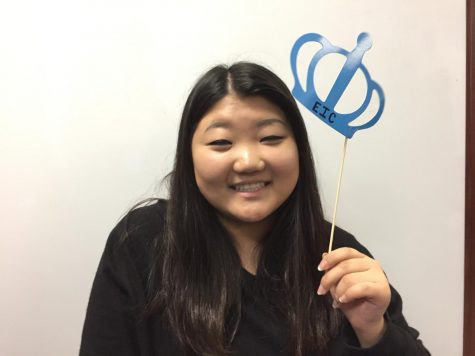
Mira LaNasa is a senior and a Print Editor-in-Chief of the Pony Express who manages the photography department. She was born in South Korea and now lives...




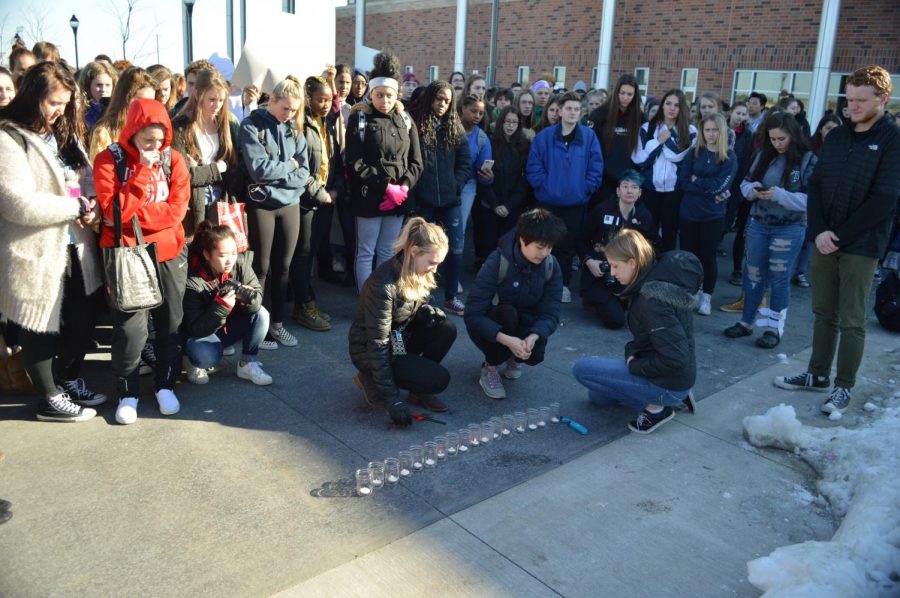


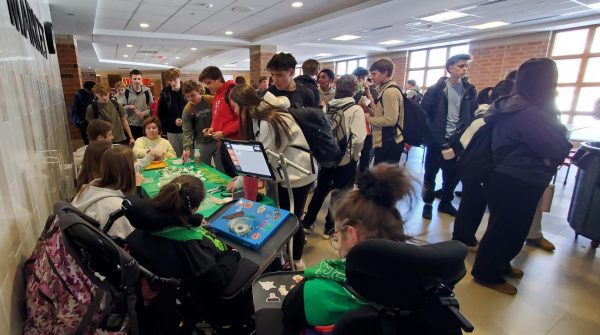
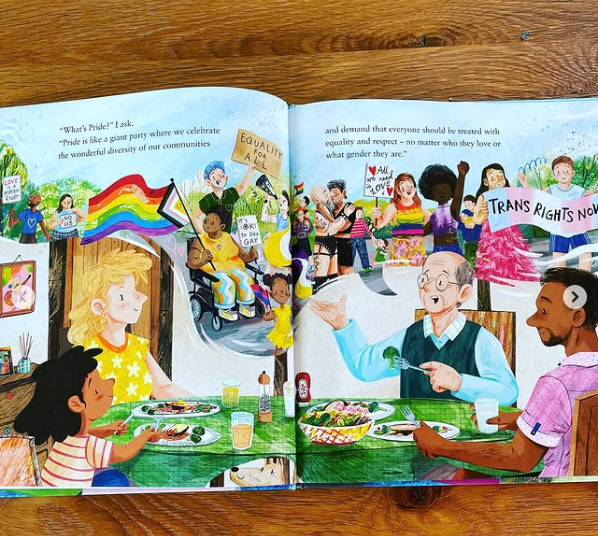

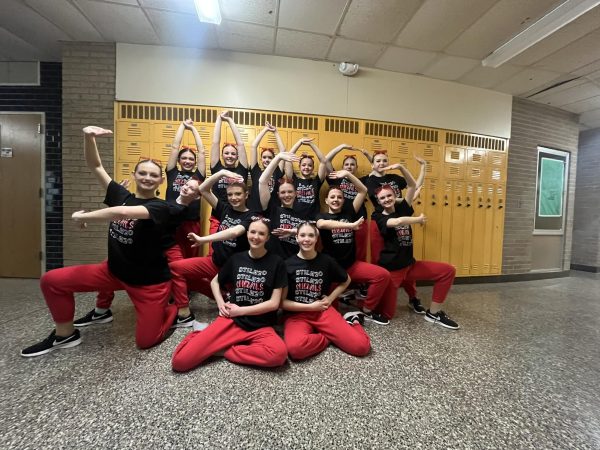
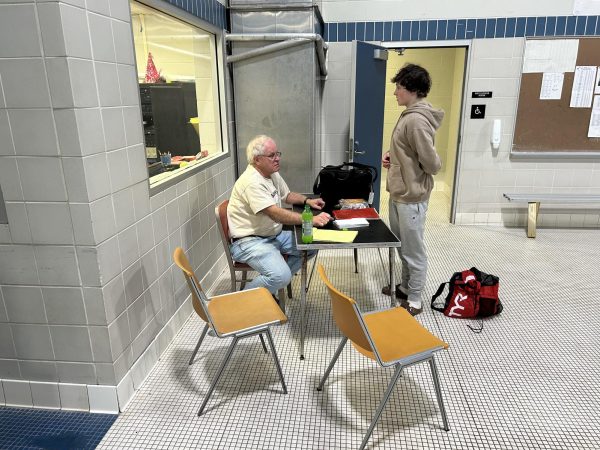
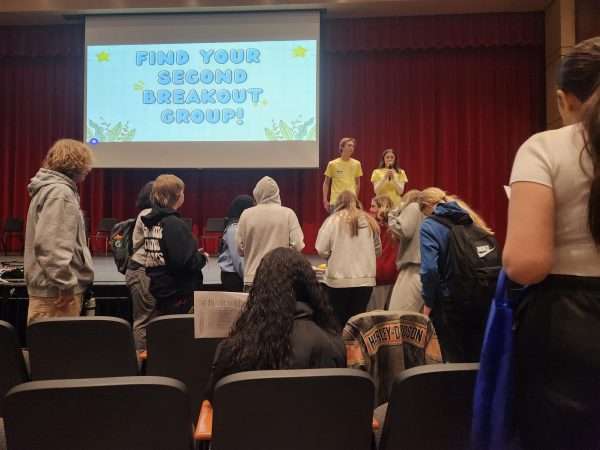
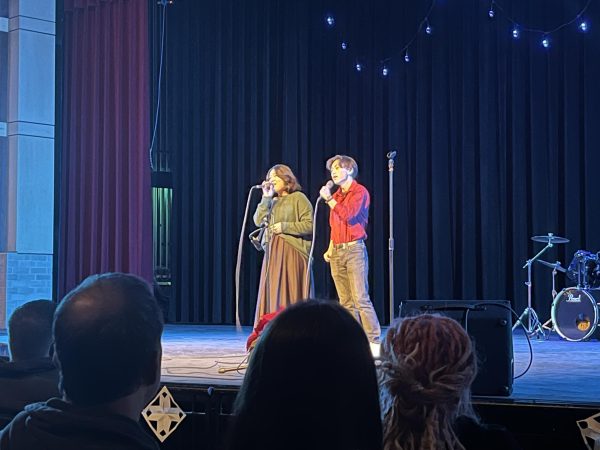
Ellie Fedorowski • May 3, 2018 at 10:51 pm
This story was so touching and detailed. The quotes were outstanding. Very good!
Michelle Burton • Apr 24, 2018 at 8:00 am
This article really has an impact. The quotes were extremely powerful and the story itself was very well put together. Photos with this story also add a lot.
Abby Banks • Apr 23, 2018 at 9:44 pm
Mira, this was fantastic! I always love reading your features! I loved the use of description throughout the piece, as well as the strong quotes. I honestly have nothing to critique; this story was so good. I thought you handled a very touchy issue and a very serious occasion very tactfully.
Chloe Squires • Apr 22, 2018 at 7:06 pm
This story had an amazing lead. Mira did a good job of showcasing the emotional and impactful event that took place on March 14th. This story was very well done!
Paxton Watson • Apr 22, 2018 at 6:13 pm
This article was written very well even though it is such a controversial topic. You really did a great job with the quotes too they helped the story.
James Stahl • Apr 22, 2018 at 5:50 pm
The whole story was descriptive and was able to come to life in my mind. The lead does a great job drawing readers in and giving some background. As the story goes on I like how you gave insight on other organized walkouts. Good job
Katherine Poor • Apr 22, 2018 at 1:37 pm
This was a really well written article. It shows the emotion of the walkout and the meaning behind it. Really nice work!!
Mark O’Shea • Apr 13, 2018 at 5:07 pm
Very strong article that hit the emotional chord hard and really made an impact on the students and people reading the article. Helped to show how big this event was to the students of America.
Alyssa Bump • Apr 13, 2018 at 8:24 am
This article was very informational and the ALT copy is what caught my attention. I really like the interactive feel of the ALT. The article is also written very well. It was very informational and timeless.
Mason Wylie • Apr 12, 2018 at 11:53 am
I really liked this article. The introduction brought an emotional appeal, and really grabbed my attention. The topic was very well introduced, and it let the reader know the importance of the topic. Also, the paragraphs transitioned smoothly from one topic to another. Great job!
Wyatt Wasko • Apr 11, 2018 at 8:55 am
This story in my opinion was very strong. The short quotes that are used make it feel like we were all standing right there where the candles were lit. Also the facts and background research that was used made the story very informational.
Hannah Boardman • Apr 10, 2018 at 9:03 am
This article was written beautifully, and it really captured the essence of the walkout. A student perspective is nice to see due to the abundance of mainstream media coverage of the event, which is mainly an adult perspective. This was a very important and emotional event for many people, and I think that this article reflects that.
Max Kennedy • Apr 9, 2018 at 10:03 pm
Your introduction brought an emotional tone to the piece which I thought was very effective at displaying how serious this issue is. I also thought you brought in compelling quotes not for a one sided argument but a bipartisan call to action which I believe is the best way to handle a tragedy like this . All in all, it was a well structured call to action and had compelling quotes to motivate the reader.
Emma Lowey • Apr 5, 2018 at 1:46 pm
This story us remarkably impactful, from the lead right down to the last quote. Your writing really put me in the moment. Great work!